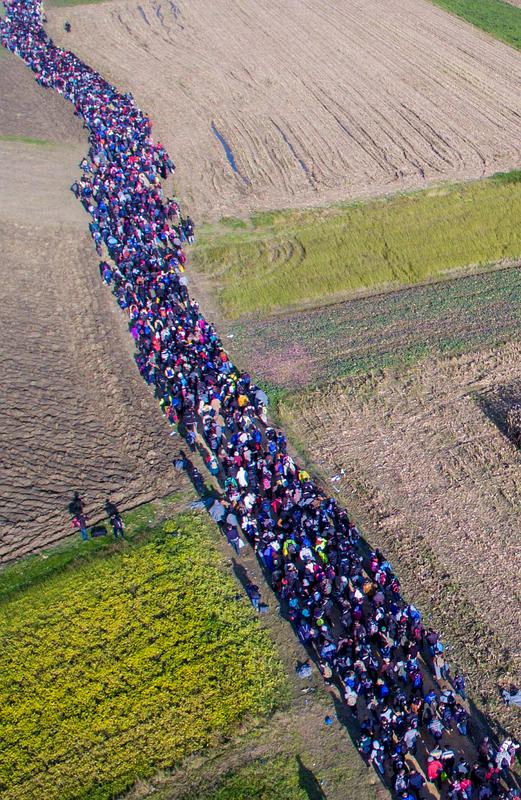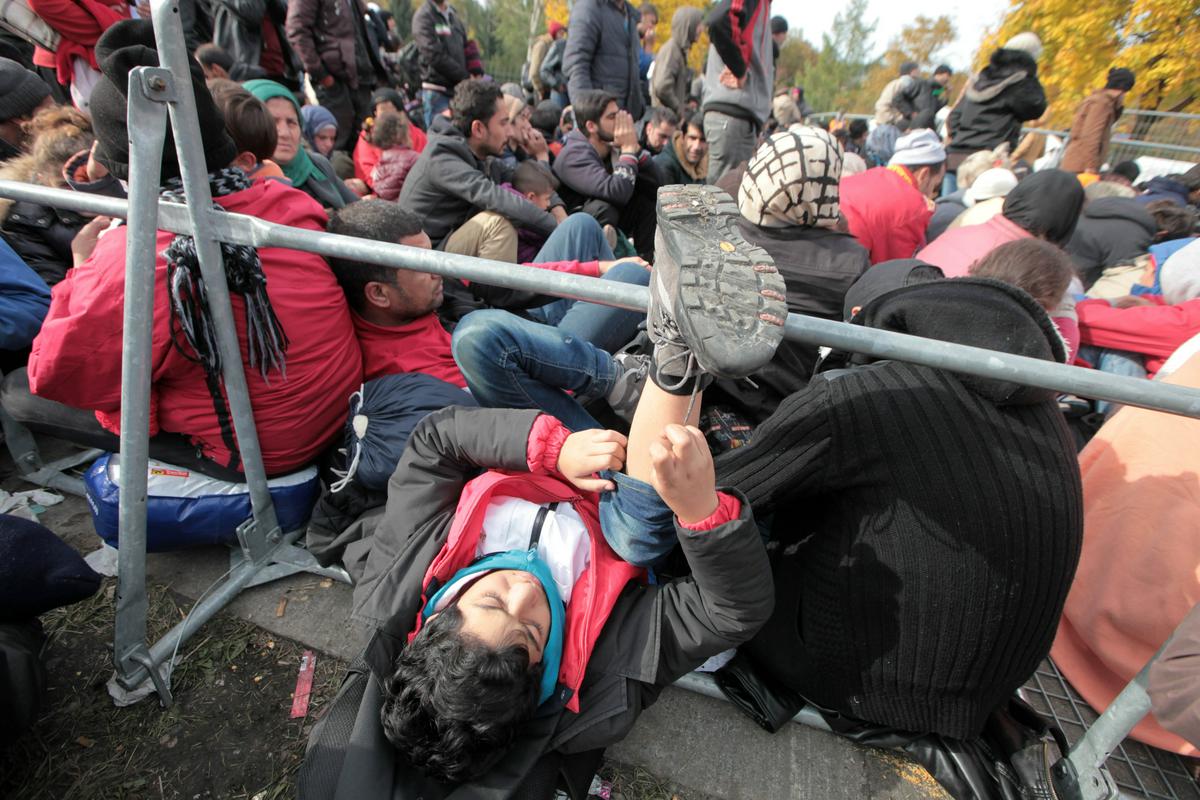

On Sunday, police prevented aid workers from helping several groups of refugees at the small border crossing of Rigonce. This has provoked a wave of complaints from a number of NGOs who wanted to help hungry and distressed refugees.
Restricting access to avoid chaos
Janez Ogulin, the director of the Novo mesto Police Department, told MMC in Rigonce that aid workers were denied access to refugees because the situation has spun out of control. He said that efforts to help refugees must be organized, and the safety aspect of it must also be considered. From now on, all volunteers must register with the Civil Protection Agency of Slovenia. Ogulin said that people can't just do whatever they feel like out there, because the police can't be sure that unregistered volunteers are who they claim to be. Moreover, the food they hand out to refugees might not be safe to eat.
This decision came as a huge surprise to a number of volunteers. Only a day before the restriction was enacted, volunteers had free access to the meadow by the border, where Croatian trains dropped off most refugees. On Sunday, volunteers and nurses from Austria, a humanitarian convoy from Germany and UNHCR reps were denied access to that meadow. A police officer stopped them and asked them: "Are you registered with the Civil Protection Agency of Slovenia?"
Efforts to help need to be coordinated
An increasing number of volunteers are willing to help refugees, and many volunteers would like to help on their own initiative. Maja Ahac of the ADRA charity organization said that efforts to help must always be coordinated, and orders from a police officer must be followed at all times. "This is why we have never encountered any problems. Only people who don't follow our rules and orders have had problems," she added.
Ahac maintains that they have only had problems with a small number of volunteers. Misunderstandings are frequent, but that is to be expected in such situations. Both refugees and volunteers are under a ton of stress. "If we get orders not to hand out bottles of water, we won't hand them out, even if people ask us to give them some water. If volunteers bring 200 meals but we need to feed 2000 mouths, chaos may ensue. It has already happened before, people were trampled by crowds. Rules are there to be followed. We only hand out food if we have enough for everyone," she stressed.
According to Ahac, many people believe they should be allowed to help refugees merely because they are ready to help. Such a mindset can cause problems. "Being a volunteer is not easy. It's a very stressful activity because volunteers need to handle difficult situations. That is why they need to follow our instructions very closely. Many volunteers can't handle that, so we ask them to help us with other projects. For instance, they can work in warehouses and pack food for the refugees," Ahac added. She stressed that volunteers must follow accepted standards when providing humanitarian assistance: "We need to help people and preserve their dignity at the same time."
Gregor Cerar, Gorazd Kosmač; translated by D. V.

































































